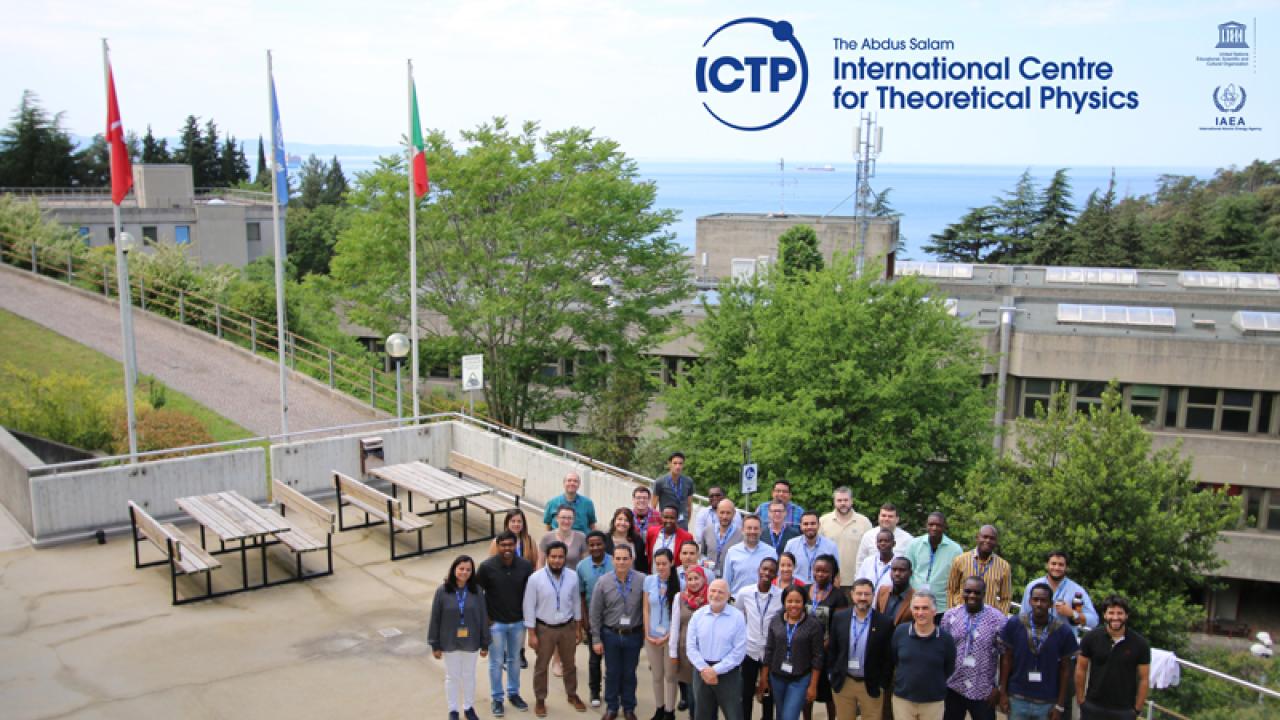
The charmingly-named Internet of Things (IoT) is the subject of an exploding field of research, attracting attention for potential applications ranging from agricultural sensing to climate monitoring. Large groups of wireless sensors can cheaply and easily collect data from many, many points, a potential that is particularly appealing to developing countries searching for data-driven, inexpensive ways to tackle a variety of issues.
The African Center of Excellence in Internet of Things (ACEIoT) at the University of Rwanda-College of Science and Technology in Kigali, Rwanda has decided to develop this potential by starting a PhD programme in the field. ICTP has continuously shared its know-how of the technology and its applications through international workshops there, starting with a 2015 workshop organized by ICTP in Rwanda. Now, the PhD students are learning from ICTP’s Marco Zennaro, an IoT specialist, who is on the Doctoral Committee for the first cohort of students. Zennaro was recently in Kigali to hear the first research proposal presentations from the PhD students. A few weeks later, several of the IoT PhD students traveled to Trieste to attend a workshop organized by Zennaro on long range environmental monitoring, the Joint ICTP-IAEA School on LoRa Enabled Radiation and Environmental Monitoring Sensors.
“There are many instances where IoT can be put to work in Rwanda and countries like it,” says Zennaro. “For example, farmers have to decide where its best to plant tea, and with climate change, weather and climate data from IoT sensors is key.” That data detailing local microclimates can be the difference between flooded fields and a strong tea economic sector. “IoT is not a new field,” says Evariste Twahirwa, one of the PhD candidates and attendees at the workshop in Trieste. “It’s a continuation and evolution of wireless sensing networks, and it’s the future of the internet.”
After their first year of study, the first cohort of 17 PhD students presented their chosen projects to their advisory committee, a group of international experts on the Internet of Things. From 12 to 14 March, each student outlined their research proposal, setting the stage for several more years of hard work. Each student works with a resident faculty advisor, two chosen field supervisors, and an external advisor, all of whom were in attendance to give feedback and guidance for this first round of project presentations. Zennaro is one of those advisors, supervising two PhD students and advising several others.
Twahirwa outlined the two aims of the ACEIoT PhD programme. “There are still a lot of gaps in developing countries like Rwanda, so we’re working on solutions for those. But we also are working on adding to the scholarship of the field. We’re thinking of solving real world problems as well as contribute to the theoretical research.”
This means that in addition to the stringent requirements typical for a PhD project, the programme requires that each project directly benefit the student’s home country. The PhD projects presented range from smart transportation to agricultural sensing to climate monitoring. “Nearly ninety percent of agricultural operations in my country are done with old methods,” says Peace Bamurigire, an ACEIoT PhD student from Rwanda who also attended the ICTP workshop. “I want to do something for my country, so I’m studying how IoT can give farmers real-time information about their fields. Each field's water and fertilizer needs can be detected through a network of sensors, so how much is used doesn’t depend on what happened a year ago.”
Twahirwa is one of two PhD students studying IoT at the Trieste workshop who are focusing on smart transportation for their PhDs. The other, Salahadin Seid Musa, comes from Ethiopia, where “there are no roadside monitoring systems. There’s no way to know where the traffic is, or where road systems need to be updated,” he says. The technology used in other countries can be cost- prohibitive, but IoT can provide similar pictures of the world through a much larger number of cheaper sensors. “Smart transportation and traffic monitoring can be used as information carriers for other metrics as well,” Twahirwa explains.
“There are so many different projects that the PhD candidates are working on,” says Zennaro, describing several. One involves systems of smart refrigerators that can keep medicines at constant temperatures while dealing with power outages, temperature swings, and transportation, which could be key for health care in many developing countries. Another student is looking at ways to monitor landscapes for landslide and flood possibilities using IoT.
The Internet of Things is only adding capabilities and applications, opening many job possibilities for the students. The ACEIoT students are already working with ministries of health, climate, and transportation, and academic research in IoT techniques is expanding. Scientists are also looking to use IoT for their research: several ICTP scientists studying crowd behavior and different aspects of climate are hoping to partner with IoT experts on projects soon.
“The projects presented were all interesting, all directly usable as well,” says Zennaro. “There’s interest in this field from a lot of parties, including governments, researchers, and businesses. ICTP’s support and activities are definitely going to continue, and it will be good to see this PhD class and the next expand the field.”
The Joint ICTP-IAEA School on LoRa Enabled Radiation and Environmental Monitoring Sensors (http://indico.ictp.it/event/8298/ ) was co-sponsored by ICTP's UN partner the International Atomic Energy Agency, along with the International Telecommunications Union, SigComm, and ICTP's SciFabLab.
---Kelsey Calhoun













